This add-on is operated by Vivid Amber Software Ltd
Bulletproof, easy to use status pages for your web application or service.
StatusHub
Last updated July 28, 2023
This article is a work in progress, or documents a feature that is not yet released to all users. This article is unlisted. Only those with the link can access it.
Table of Contents
StatusHub is an add-on which provides hosted status pages for web application or service.
Adding StatusHub to your app will create your custom status page for Heroku and give you ability to add custom services to it. StatusPage provides couple color themes to choose from and ability to customize your status pages (logo, description, services statuses).
StatusHub visitors can subscribe for updates for your status page. Notification channels include: email, SMS, Twitter and webhook.
Provisioning the add-on
StatusHub can be connected with a Heroku application via the CLI:
A list of all plans available can be found here.
$ heroku addons:create statushub
-----> Adding statushub to sharp-mountain-4005... done, v18 (free)
After installing StatusHub the application should be configured to fully integrate with the add-on.
When you first log into the StatusHub application, you will see a 5 steps form similar to the one below.
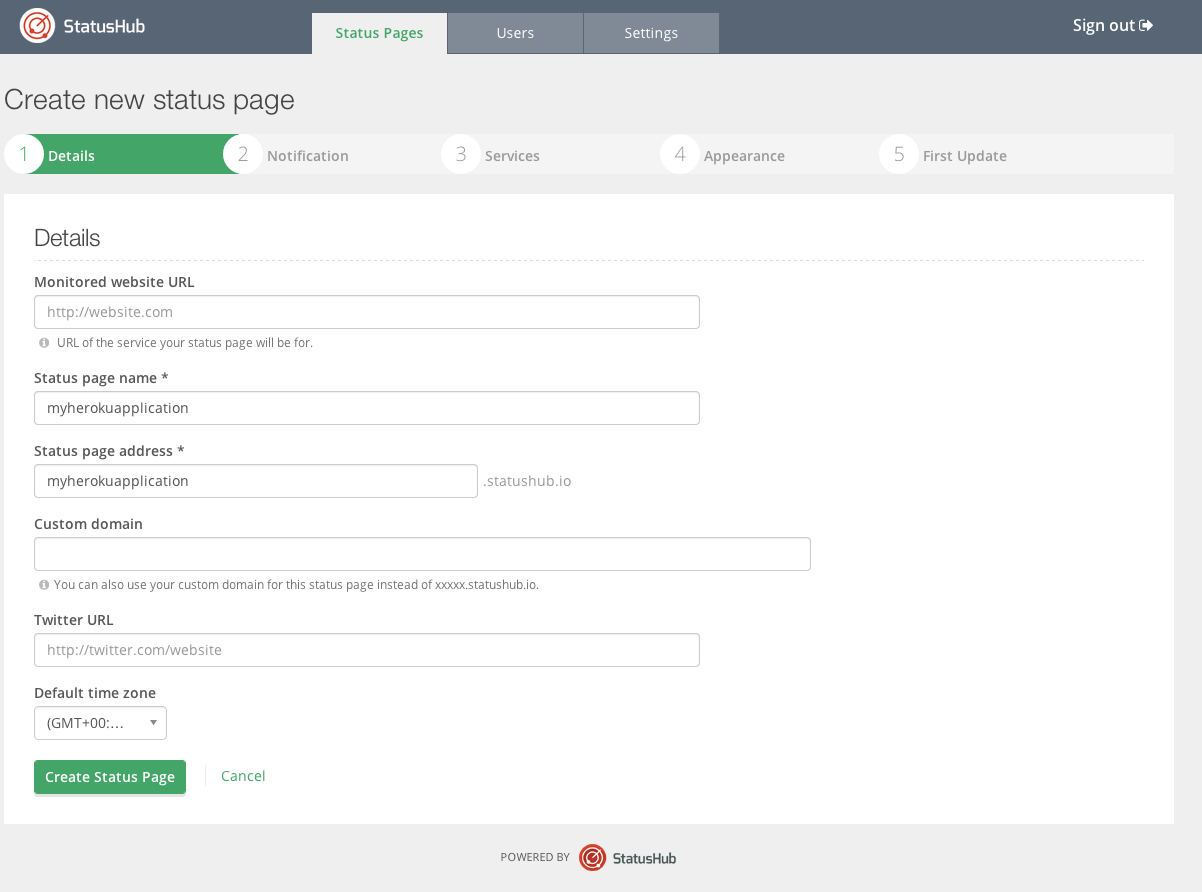
The only required fields are subdomain and name which are automatically pre-filled with your app name. Customize status page details or leave them empty and click “Create Status Page”.
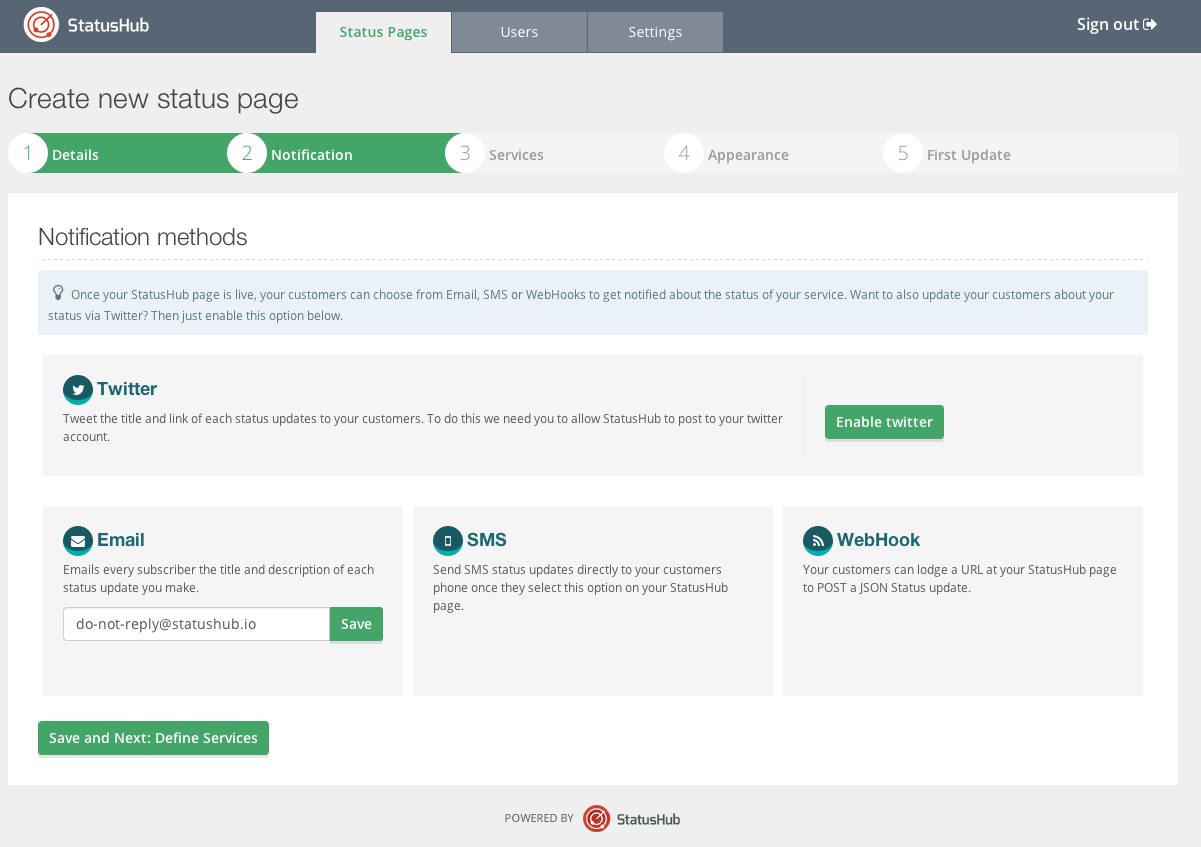
In a second step you can customize notification services and change email address for email notifications.
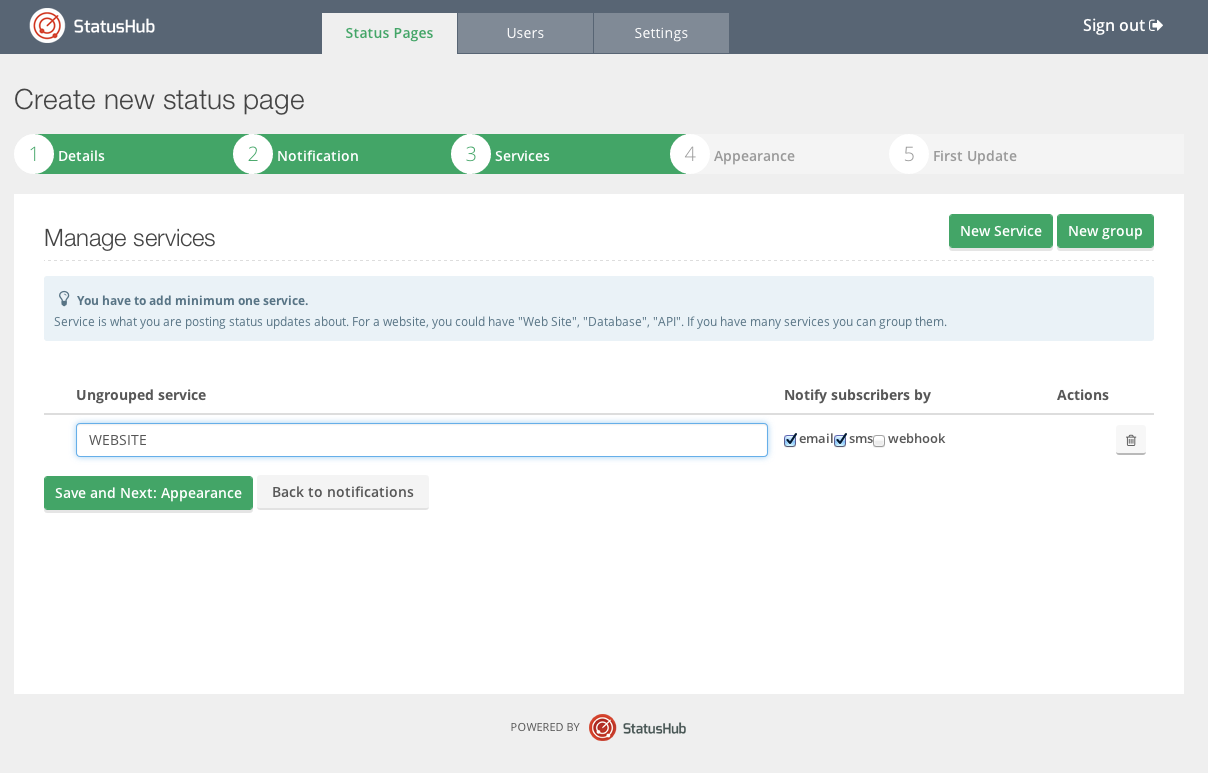
In this step you define application services as needed. Here you can specify name for it and change way of notification.
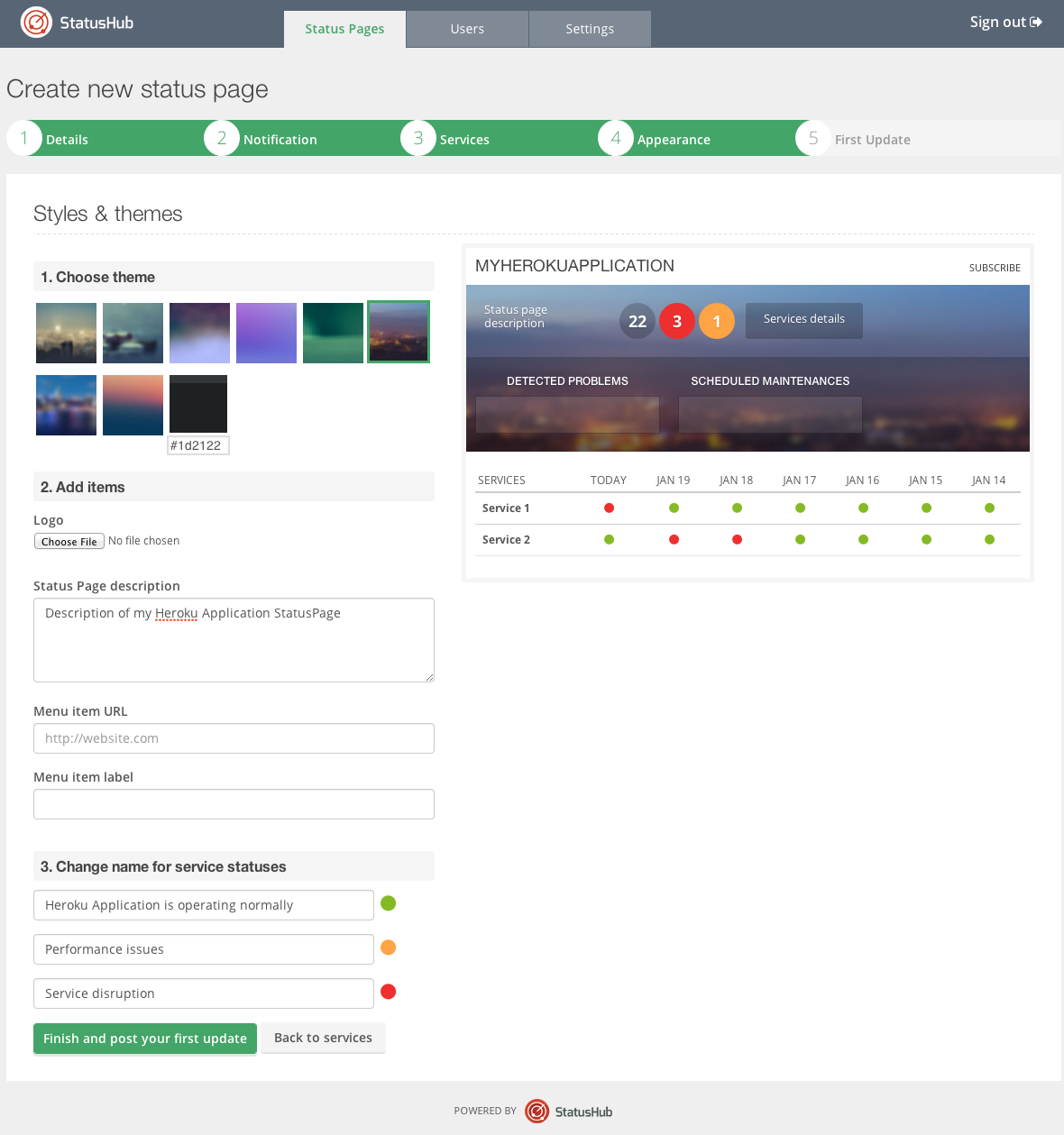
In this step you can customize status page look or leave default styles.
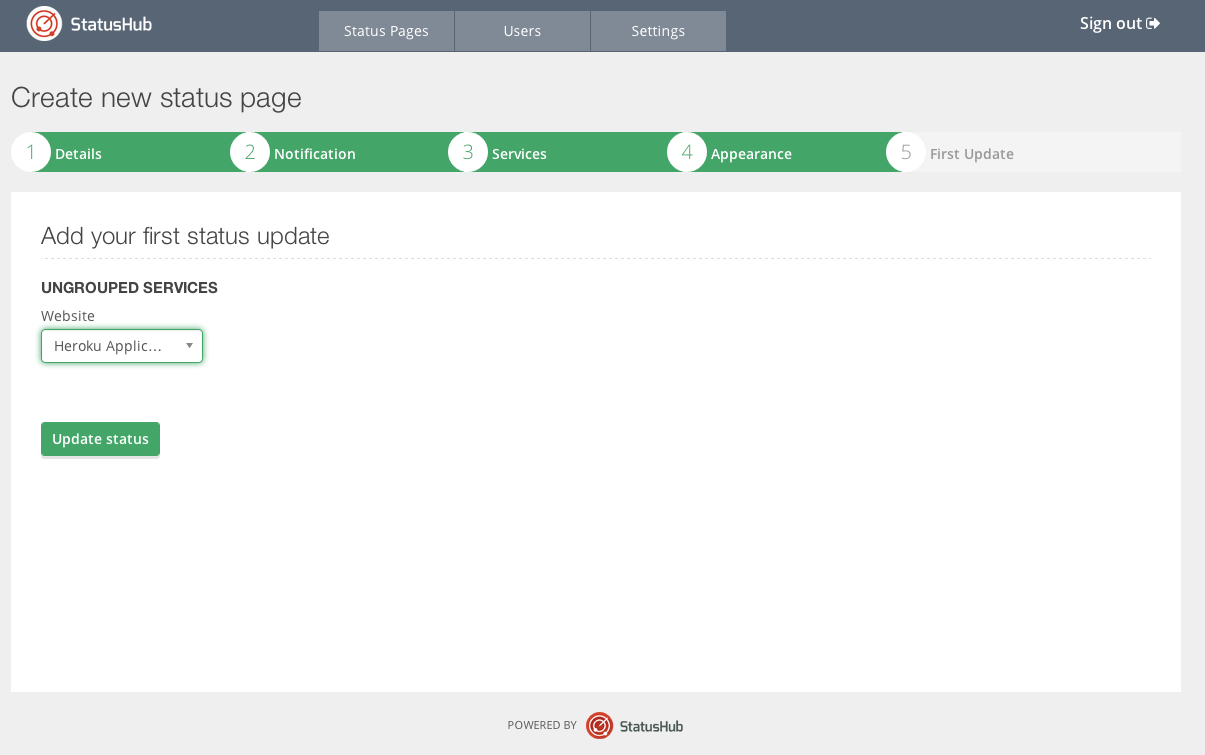
Last step will create initial status update for status page. You can also set status updates for your services. Clicking on “Update Status” will redirect you to newly created status page.
Dashboard
For more information on the features available within the StatusHub dashboard please see at StatusHub
The StatusHub dashboard allows you to manage your status pages. You can see current statuses of your services here. You may add status update to your status page, create an incident or schedule maintenance. You can also add new status pages from this place. Clicking on “Edit Page” allows you to customize your status page. You can change details, notifications details, appearance and add services. Clicking on “History” takes you to the panel where you can manage all your previous status updates, as well as incidents and maintenances. Click “Manage Users” if you wish to see the list of your subscribers.
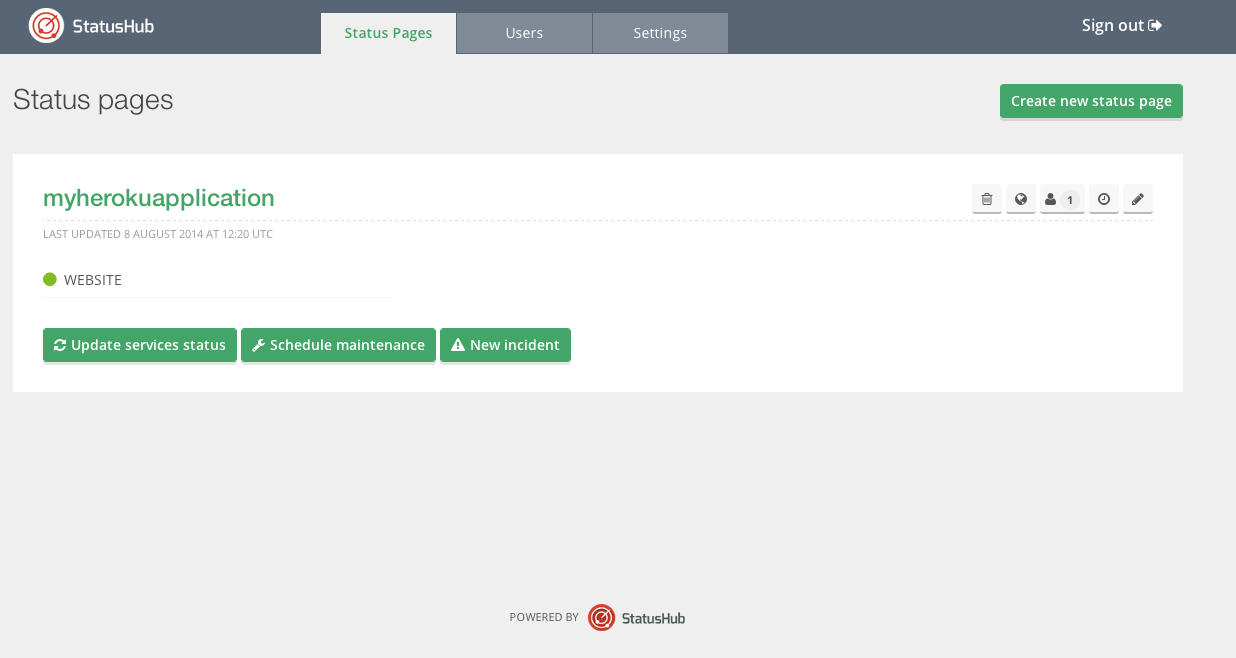
The dashboard can be accessed via the CLI:
$ heroku addons:open statushub
Opening statushub for sharp-mountain-4005…
or by visiting the Heroku Dashboard and selecting the application in question. Select StatusHub from the Add-ons menu.
Removing the add-on
StatusHub can be removed via the CLI.
This will destroy all associated data and cannot be undone!
$ heroku addons:destroy statushub
-----> Removing statushub from sharp-mountain-4005... done, v20 (free)
Support
All StatusHub support and runtime issues should be submitted via on of the Heroku Support channels.